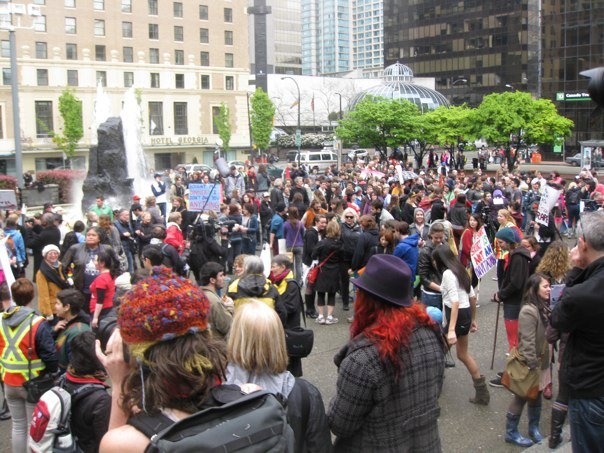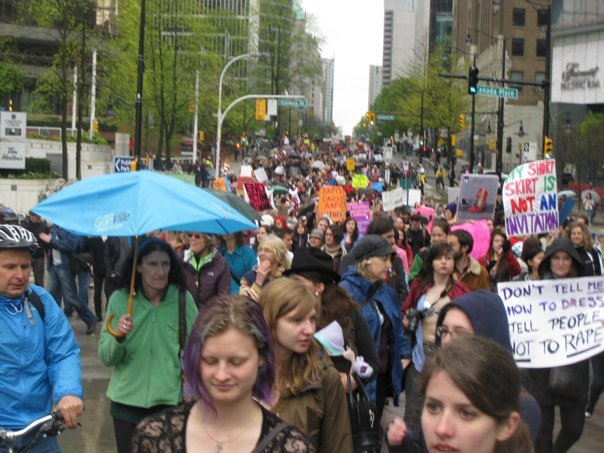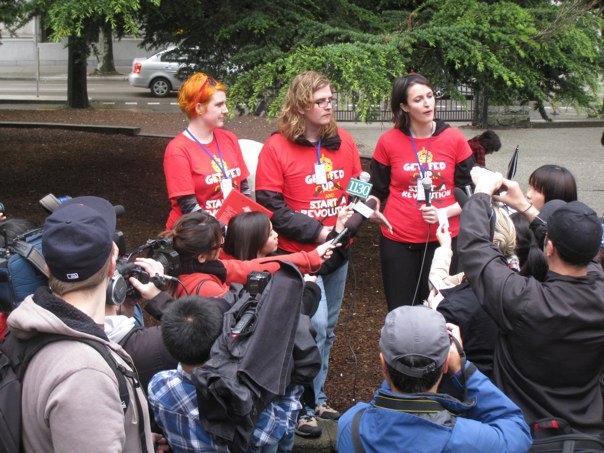I screwed up. A couple of weeks ago I introduced a new term into the discussion – “coded racism” – without doing my usual thought-piece beforehand:
To the list of code words that don’t sound racist but are, I would add ‘personal responsibility’. While personal responsibility is a good thing, its usage in discussions of race inevitably cast black and brown people as being personally irresponsible, as though some genetic flaw makes us incapable of achievement (which, in turn, explains why we deserve to be poor and why any attempt to balance the scales is ‘reverse racism’).
I have danced around the idea, and I have made occasional reference to the concept behind it, but I haven’t really explained what coded racism is. I will have to do that in next Monday’s post, so stay tuned for that. As a teaser explanation, I will simply point out that oftentimes phrases are used to identify groups in a sort of wink/nudge way, where everyone listening knows who the speaker is really talking about. It’s phrases like “Welfare queen” and “illegal immigrant” that do not explicitly name the group being criticized, but still carry with them the image of a particular race. It is not, as is the common objection, simply a phrase describing any criticism of racial minority groups.
Before we can really delve too deeply into coded racism, there is a truth that we must acknowledge and grok – that racism (like all cognitive biases) can happen at levels not available to our conscious mind. The second part of the grokking is that even though we are not aware of it, racism can influence the decisions we make. As much as we like to believe that we are free-willed agents of our own decision-making, closer to the truth is that a wide variety of things operate in our subconscious before we are even aware that a decision is being made. This is why an artist, an engineer and a physicist could all look at the same blank piece of canvas and see completely different things (a surface upon which to draw, a flat planar surface with coefficient of friction µ, a collection of molecules). We then build conscious thoughts on top of the framework of our subconscious impressions and arrive at a decision.
So when we tell ourselves “I don’t have a racist bone in my body“, what we are really referring to are those conscious thoughts. Most people refuse to entertain overtly racist attitudes, because those attitudes have become wildly unpopular and people recognize that racism is destructive. However, our decisions are only partially decided by our overt ideas, and we can end up engaging in patterns of behaviour that may surprise even us:
You are more likely to land a job interview if your name is John Martin or Emily Brown rather than Lei Li or Tara Singh – even if you have the same Canadian education and work experience. These are the findings of a new study analyzing how employers in the Greater Toronto Area responded to 6,000 mock résumés for jobs ranging from administrative assistant to accountant.
Across the board, those with English names such as Greg Johnson and Michael Smith were 40 per cent more likely to receive callbacks than people with the same education and job experience with Indian, Chinese or Pakistani names such as Maya Kumar, Dong Liu and Fatima Sheikh. The findings not only challenge Canada’s reputation as a country that celebrates diversity, but also underscore the difficulties that even highly skilled immigrants have in the labour market.
This phenomenon is well-known to people who study race disparity, but it is rare to see it make the pages of a paper like The Globe and Mail – hardly a leftist rag. People of colour (PoCs), or in this case people who seem non-Anglo, are at a disadvantage not because of how they look, or how they act, but simply because they have funny-sounding names. Now one would have to be particularly cynical to think that a human resources professional is sitting there saying “Fatima Sheikh? I don’t want no towel-head working for ME!” and throwing résumés in the trash. As I said, that kind of overt racism is rare, even in the privacy of one’s own head. What is far more likely is that, given a situation in which a choice had to be made between a number of potential candidates, the HR person made a ‘gut instinct’ decision to call back the person that they felt most comfortable with.
The problem is that when we feel different levels of comfort with people of different ethnic backgrounds, our aggregate decisions tend to benefit white people and disadvantage PoCs. This isn’t because we’re all card-carrying KKK members, but because we are products of a racist society. This kind of thinking isn’t relegated to how we hire, either:
An experiment was conducted to demonstrate the perceptual confirmation of racial stereotypes about Black and White athletes… Whereas the Black targets were rated as exhibiting significantly more athletic ability and having played a better game, White targets were rated as exhibiting significantly more basketball intelligence and hustle. The results suggest that participants relied on a stereotype of Black and White athletes to guide their evaluations of the target’s abilities and performance.
In a situation where an athlete is identified to study participants as either black or white, but performance is kept exactly the same (they listen to a radio broadcast), what is considered ‘athletic ability’ in a black player is ‘basketball intelligence’ and ‘hustle’ in a white player. The identical stimulus is perceived in different ways, based on racial ideas that are not readily available to the subjects (and, by extension, the rest of us). This finding on its own may be benign enough, but extrapolate the fact that innate ‘athletic talent’ in one race is seen as ‘intelligence and hustle’ in another – the black players are just naturally good; the white ones had to work for it. Poor white folks are ‘down on their luck’, poor black folks are ‘waiting for a handout’. Jobless white folks are ‘hit hard by the economy’; jobless brown folks are ‘lazy’.
And so, when we discuss the idea of words that are simply coded racial evaluations, we have to keep in mind that it is this subconscious type of racism that these phrases appeal to. Far from simply being a macro description of a real problem, the way they are used bypasses our conscious filters and taps right into the part of our mind we don’t know is there, and like to deny.
Like this article? Follow me on Twitter!




